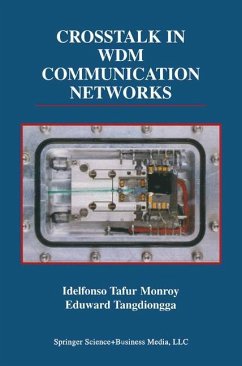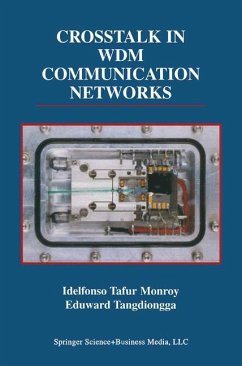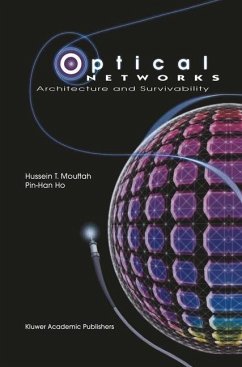
Optical Packet Access Protocols for WDM Networks
Versandkostenfrei!
Versandfertig in 1-2 Wochen
77,99 €
inkl. MwSt.
Weitere Ausgaben:

PAYBACK Punkte
39 °P sammeln!
The fast growing traffic demand in telecommunication networks, by use of the Internet and an increasing number of broadband services for multimedia com munications, requires new high performance networking technologies. As such, optical WDM networks are playing a pivotal role. Wavelength Division Mul tiplexing (WDM) with many hundreds of wavelength channels per fiber is ex tensively being exploited in wide area networks. With respect to the ongoing trend towards a completely packet-switched mode of operation for all services, WDM networks must be prepared accordingly. This work concentrates on...
The fast growing traffic demand in telecommunication networks, by use of the Internet and an increasing number of broadband services for multimedia com munications, requires new high performance networking technologies. As such, optical WDM networks are playing a pivotal role. Wavelength Division Mul tiplexing (WDM) with many hundreds of wavelength channels per fiber is ex tensively being exploited in wide area networks. With respect to the ongoing trend towards a completely packet-switched mode of operation for all services, WDM networks must be prepared accordingly. This work concentrates on optical packet-switched networking in local and metro area networks for realizing high-performance applications like virtual re ality, medical imaging, and supercomputing. It is well known that in those networks using a star, bus, or ring shared medium, an access protocol is nec essary to guarantee controlled and fair access for all attached nodes. Similar access protocols are to be developed and analyzed for WDM local and metro area networks. Already, many media access protocols for these networks have been described in the literature. However, some aspects of Quality-of-Service (QoS) for different service classes are still an open issue and subject to inten sive research activities. In the introduction, the author, Dr. Kemal Bengi, gives a short classification of media access protocols and network architectures for WDM local and metro area networks. The need for service classes is also em phasized.














